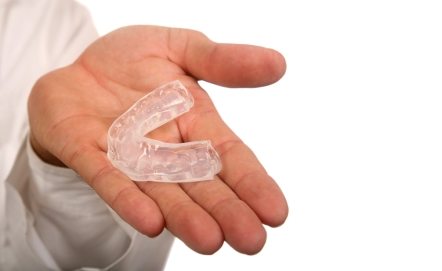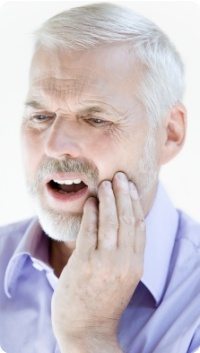Effective Bruxism Treatment
Some cases of bruxism are worse than others; however, there are treatments available to minimise your chances of further damage. Although dentists work to protect your teeth, it may help some patients to look into treating their anxiety and stress. A good night’s sleep is very important for daily activities, so seek calming activities such as yoga, reading and deep breathing before bed.
Mouthguards and Mouth Splints
It may help to wear a mouthguard or splint at night if you suffer from bruxism. These devices are designed to even out the pressure across your jaw and create a barrier between your teeth that can take the force of your bite. Dental mouthguards are similar to those used when playing sports, and your dental specialist will take a custom mould to ensure your complete comfort.
A mouth splint is typically made from harder plastic, and it fits precisely over your upper or lower teeth. These achieve similar results but will usually last longer than a mouthguard. Your dentist will speak with you about your options to develop a personalised treatment plan.
Treating Dental Problems
Make sure you organise regular check ups with your dentist so they can identify any problems caused by your bruxism. Misaligned, cracked, crooked and missing teeth can be treated with reconstructive dental work; reshaping the surface of your teeth may stop your grinding habit.
Discuss Your Options with Kedron Family Dental
If you suspect that you suffer from bruxism, talk to one of our team members. We can tell you if your symptoms are in due to bruxism and offer effective treatment to minimise the damage associated with bruxism. Make an appointment for a consultation today by calling (07) 4736 8106 or by contacting us online.


